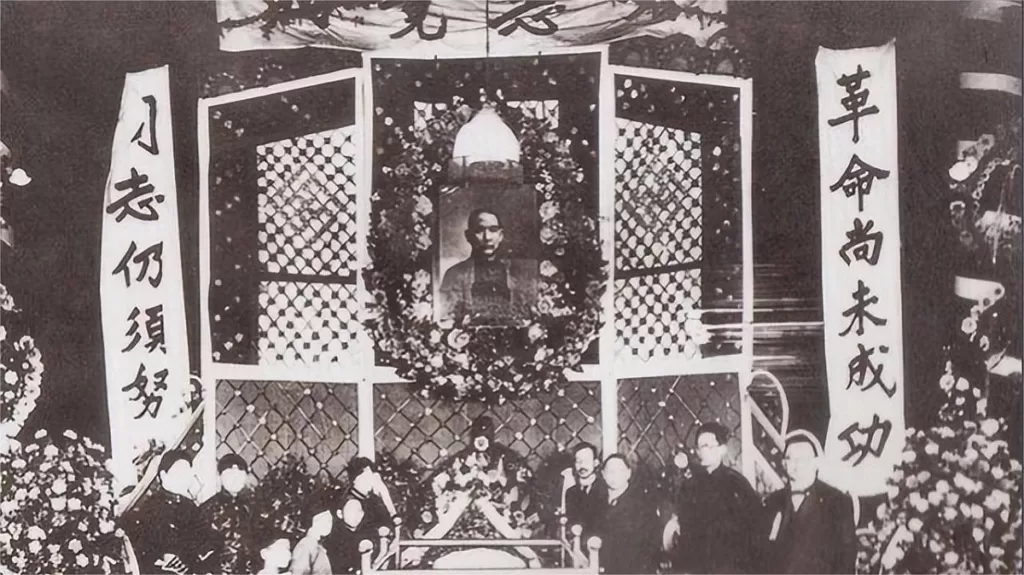Sun Yat-sen - Pai da Nação


Sun Yat-sen, also known as Sun Zhongshan, was a Chinese revolutionary and political leader who played a pivotal role in the overthrow of the Qing Dynasty and the founding of modern China. He is often referred to as the “Father of the Nation” and remains a revered figure in Chinese history.
Born on November 12, 1866, in the village of Cuiheng in Guangdong province, China, Sun came from a modest farming family. Despite his humble beginnings, he excelled in his studies and demonstrated an early interest in politics and social reform. Sun’s exposure to Western ideas during his education in Hawaii and Hong Kong deeply influenced his thinking and set the course for his future political endeavors.
In 1894, after witnessing the weakness and corruption of the Qing Dynasty during the First Sino-Japanese War, Sun became determined to lead a movement for change. He founded the Revive China Society, later renamed the Tongmenghui, a secret revolutionary organization aimed at overthrowing the Qing Dynasty and establishing a republican government.
Throughout his life, Sun experienced numerous challenges and setbacks in his quest for revolution. His attempts to stage uprisings against the Qing Dynasty failed, forcing him to go into exile multiple times. However, his resilience and commitment to the cause of revolution never wavered.
It was not until 1911 that Sun’s efforts bore fruit. In the Wuchang Uprising, a coordinated revolt by military officers and revolutionary forces, the Qing Dynasty’s power was shaken. On October 10, 1911, the revolutionaries officially declared the establishment of the Republic of China, and Sun Yat-sen was elected as the provisional president.
Despite his new role, Sun’s leadership faced numerous challenges. The country remained divided, with regional warlords vying for power, and foreign influence remained a significant factor in Chinese affairs. Sun recognized the need for national unity and embarked on his “Three Principles of the People” ideology – nationalism, democracy, and livelihood – as a foundation for a modern Chinese state.
However, the early years of the Republic were turbulent, with Sun facing internal struggles within the Kuomintang (KMT), the political party he had established. Amidst political instability and military conflicts, Sun sought international support for his vision of a united China. He traveled extensively, seeking assistance from foreign governments, including the United States and the Soviet Union.
Sun’s efforts culminated in the formation of the First United Front with the Communist Party of China (CPC) in 1924. This alliance marked a turning point in Chinese politics, although it faced its challenges due to ideological differences. The United Front provided some stability, but Sun’s health began to decline rapidly due to liver cancer.
Sun Yat-sen passed away on March 12, 1925, at the age of 58. His death was met with widespread mourning across the nation and international condolences. The CPC and the KMT continued to cooperate after his death, but the alliance was short-lived, eventually leading to decades of internal strife and civil war.
Sun Yat-sen’s legacy as a visionary leader and revolutionary icon endures. He is remembered not only for his role in overthrowing the Qing Dynasty but also for his progressive ideas that laid the groundwork for modern Chinese governance. His “Three Principles of the People” continue to be important guiding principles in Taiwan, where the KMT retreated after losing the Chinese Civil War. Additionally, his Mausoleum in Nanjing stands as a symbol of his lasting impact on Chinese history and the quest for a unified, prosperous, and democratic China.
Facts about Sun Yat-sen

O legado multifacetado e duradouro de Sun Yat-sen

Sun Yat-sen foi um bom líder?

Como morreu Sun Yat-sen

O que é que Sun Yat-Sen realizou

A Ideologia de Sun Yat-Sen - Três Princípios do Povo

Sun Yat-sen era comunista?